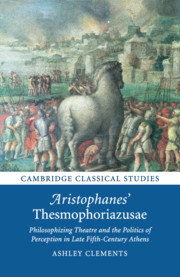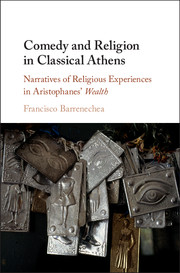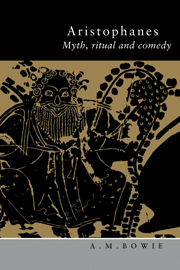Aristophanes' Thesmophoriazusae
Aristophanes' comic masterpiece Thesmophoriazusae has long been recognized amongst the plays of Old Comedy for its deconstruction of tragic theatricality. This book reveals that this deconstruction is grounded not simply in Aristophanes' wider engagement with tragic realism. Rather, it demonstrates that from its outset Aristophanes' play draws upon Parmenides' philosophical revelations concerning reality and illusion, employing Eleatic strictures and imagery to philosophize the theatrical situation, criticize Aristophanes' poetic rival Euripides as promulgator of harmful deceptions, expose the dangerous complicity of Athenian theatre audiences in tragic illusion, and articulate political advice to an audience negotiating a period of political turmoil characterized by deception and uncertainty (the months before the oligarchic coup of 411 BC). The book thereby restores Thesmophoriazusae to its proper status as a philosophical comedy and reveals hitherto unrecognized evidence of Aristophanes' political use of Eleatic ideas during the late fifth century BC.
- Provides a new philosophical close reading of the dramatic framework of a major play by Aristophanes
- Contributes to our understanding of the popular reception and pragmatic use of philosophical ideas during the late fifth century BC, and also of Plato's later reception of Aristophanic comedy
- Restores Thesmophoriazusae to its proper status as a philosophical comedy, revealing hitherto unrecognized evidence of Aristophanes' selective and tendentious comic appropriation of Eleatic ideas
Product details
May 2020Paperback
9781108820240
243 pages
140 × 215 × 15 mm
0.32kg
Available
Table of Contents
- Proagōn: a tragic fable
- 1. Introduction
- 2. Rereading the prologue
- 3. Sophistic models: eristic and άντιλογία
- 4. On what [it] is not: Gorgias and Empedocles
- 5. On what [it] is: Parmenides, para-Doxa, and mortal error
- 6. Conclusion
- Appendices.




